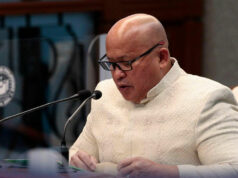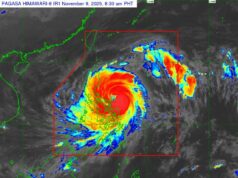Opposition told to focus on local governance

By Kyle Aristophere T. Atienza, Reporter
OPPOSITION forces need to focus on consolidating power at the level of local government units (LGUs), while they are still recovering from major electoral losses in previous years, political analysts said.
Maria Ela L. Atienza, who teaches political science at the University of the Philippines, said progressive groups need to get the backing of local officials and communities to popularize their governance platforms and secure national seats.
“A strong opposition with alternative, progressive platforms will need strong support from the local levels, not just local officials but communities,” she said in a Viber message. “Thus, it is logical to have progressive candidates challenging local traditional politicians.”Arjan P. Aguirre, who teaches political science at the Ateneo de Manila University, said local politics has been an important arena for politicians seeking national posts, citing the case of former president Rodrigo R. Duterte, who ruled Davao City for over 22 years.“He proved to the people that he can do something despite being a local politician,” Mr. Aguirre said via Messenger chat.
He said opposition forces should have focused on building political power at the local level “during the time when the opposition is having a hard time winning national posts.”
“The struggle should have shifted to the local and try to be closer to the people and make their presence felt more by making sure that government services are delivered even though you’re in the opposition.” he said.
From six seats in the 18th Congress, the left-leaning Makabayan bloc secured only three seats in the 19th Congress — one each for Kabataan, ACT Teachers, and Gabriela party-lists. Bayan Muna, a popular group in the former 12-member bloc, in 2022 lost for the first time since joining in 2001.
The centrist Akbayan Party-list, which had been represented by Senator Risa Hontiveros-Baraquel in the House of Representatives in the 2000s and which allied itself with the Liberal Party in 2010, failed to secure a seat in the last two national elections.
After two failed attempts, Ms. Hontiveros was elected to the Senate in 2016. She was re-elected in 2022. In 2019, the midterm polls under Mr. Duterte, none of the opposition candidates vying for a Senate seat won.
The Sanlakas Party-list, a democratic socialist party with links to the late unionist Filemon “Ka Popoy” Lagman, lost for the first time in 2004 after securing a single seat in 2001 and in 1998, when the first party-list election was held.
The Partido Lakas ng Masa (PLM), which has ties with Sanlakas, had never secured a House seat since its first electoral participation in 2019.
“The local level has always been a crucial source of political support for the national contest. This still matters even now that we are in the age of social media,” Mr. Aguirre said, noting how the opposition should be “targeting seemingly harmless positions such as council members to expand their reach and presence at the local level.”
He noted that Katipunan ng Nagkakaisang Pilipino (KaNP), which was established in 2020, is the only progressive force that is “known to be focusing on the local arena.”
Ronald Llamas, the late former president Benigno S. Aquino, III political adviser, said opposition groups should fight in all arenas possible — both at the national and local levels.“It should be both national and local at the same time,” he said in a Viber message.
The presence of opposition forces has been under public scrutiny amid a widening rift within the personality-driven alliance between the families of President Ferdinand R. Marcos, Jr. and Vice-President Sara Duterte-Carpio, whose father has openly attacked the current administration amid an International Criminal Court (ICC) probe of his deadly war on drugs.
Days after holding a political rally in Davao City late last month, which was highly critical of Mr. Marcos, Mr. Duterte pushed for the separation of Mindanao from the rest of the nation.
Mr. Marcos and his Cabinet officials have already rejected the idea, with the Philippine leader saying it’s “doomed to fail” because it’s “anchored on a false premise.”
Tensions within the ruling alliance had been apparent after the President’s allies in Congress, which is headed by his cousin House Speaker Martin G. Romualdez, moved for the removal of Ms. Duterte-Carpio’s proposed confidential funds as vice president and education secretary from the 2024 national budget.
Mr. Duterte won the presidency in 2016 on the back of hardline promises to eradicate criminality and illegal drugs, vowing to replicate what he supposedly did in his home city despite records of human rights violations.
The ICC probe covers crimes committed in Davao City from November 2011 to June 2016 when he was still its mayor, as well as cases during his presidency up until March 16, 2019, the day before the Philippines withdrew from the ICC.



